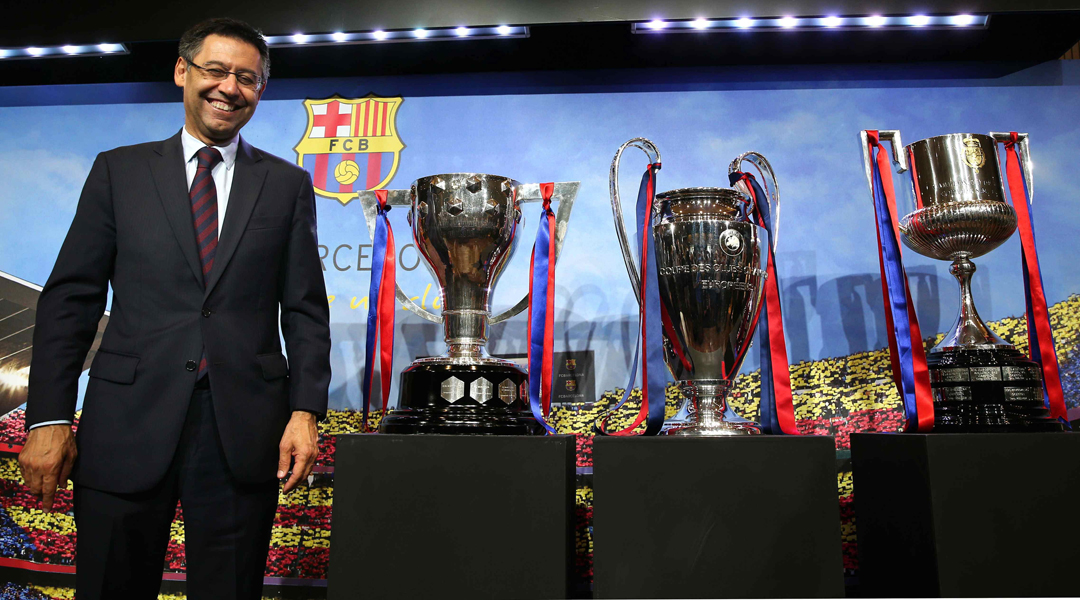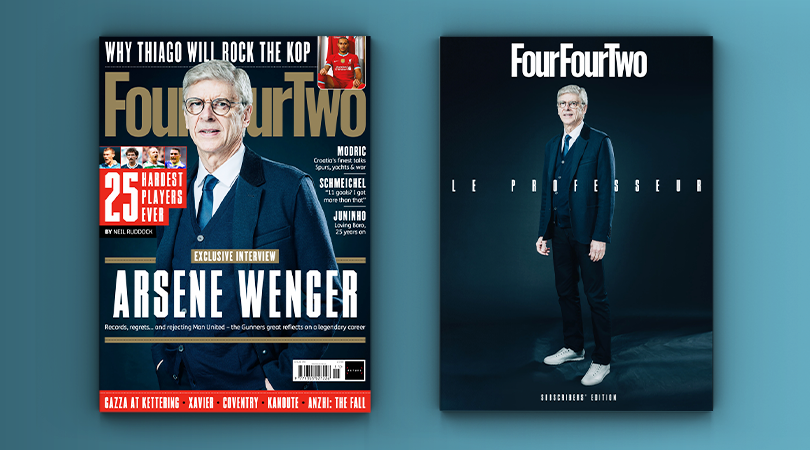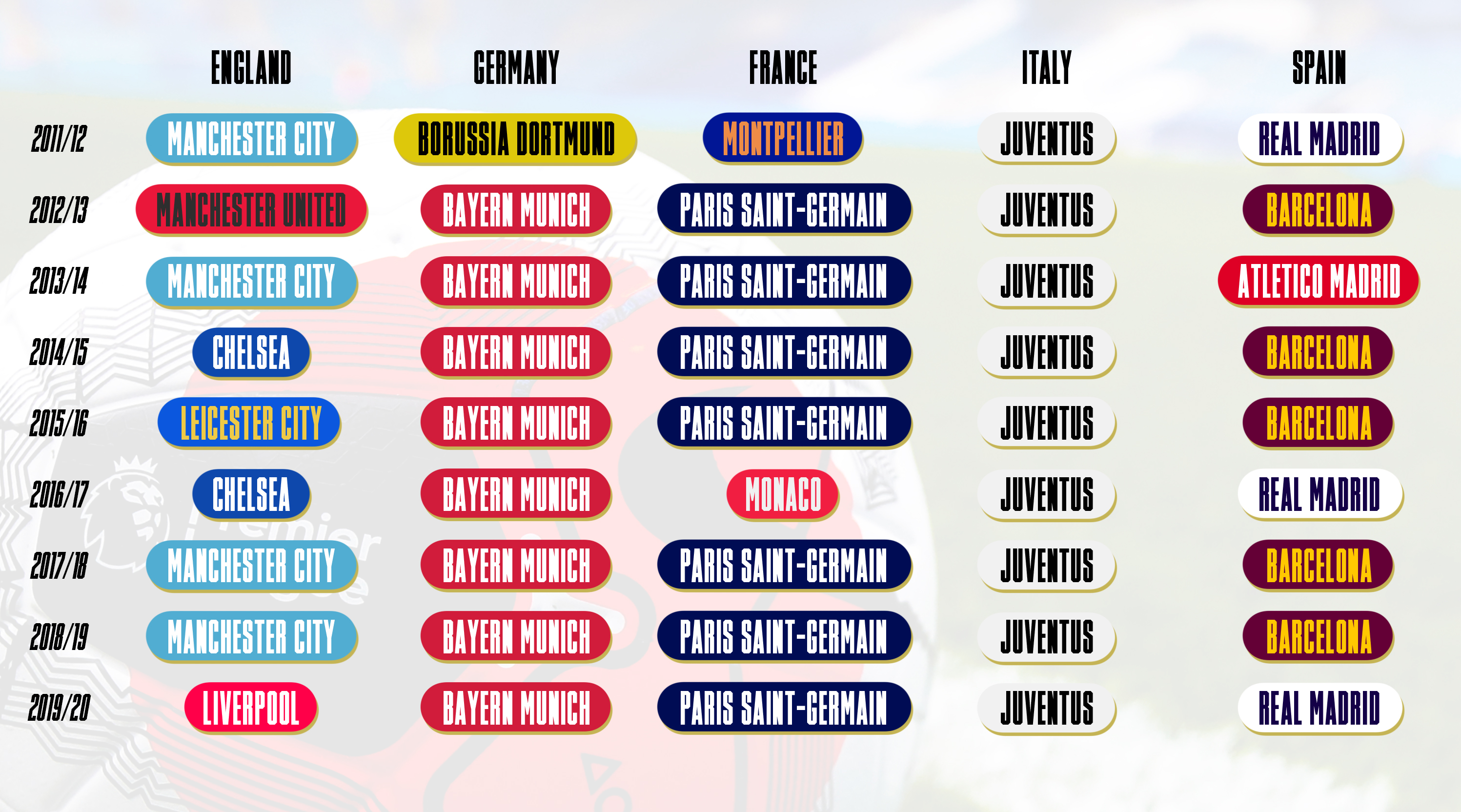Is a European Super League really going to happen?
After the Barcelona president's incredible announcement, is a European Super League finally on the cards – or is it all part of some political game? Here's the arguments for and against

A spectre is haunting European football; the spectre of a European Super League.
On Tuesday night, Josep Maria Bartomeu announced his resignation as president of Barcelona Football Club. During his 35-minute statement, he dropped in – almost as a casual aside – that Barça would take part in a new Super League.
“I can announce some extraordinary news," Bartomeu said. "Yesterday we accepted a proposal to participate in a future European Super League, which would guarantee the future financial sustainability of the club. And we’ve accepted the future Club World Cup format.”
This was a bit of a bombshell to drop in so unexpectedly, and is the first public and formal acknowledgement of any kind that discussions for a Super League have been taking place.
So is this idea finally happening? Here, FourFourTwo looks at why a European Super League could really happen this time – and why it might be a load of rubbish.
First, here's what the idea means.
What would a European Super League look like? Is it different from a European Premier League? And who would be involved?

It depends who you ask. And, truth be told, the exact structure of it would probably not be entirely clear until 'crunch' talks between willing participants took place.
Get FourFourTwo Newsletter
The best features, fun and footballing quizzes, straight to your inbox every week.
But the generally accepted view is that it would be a normal, round-robin league format featuring around 18 clubs from across Europe that would be closed off from other league structures – meaning that bottom teams would not be relegated, and no one could be promoted into the league. This 'franchise' system is common in American sports: Major League Soccer, NBA basketball and NFL gridiron football all operate closed leagues.
Usually this idea is known as a European 'Super' League, though when Sky News reported that talks had taken place with Liverpool and Manchester United recently, it was described as a European Premier League. The only difference here seemed to be in branding, and the two descriptors mean fundamentally the same thing.
As well as Barcelona, Liverpool and United, a Super League would probably include the best (or most financially attractive teams) from major European leagues. PSG, Bayern Munich, Real Madrid and Juventus would be likely shoo-ins, with Atletico Madrid, Borussia Dortmund and Inter Milan other usual suspects.
How many more English sides from Manchester City, Chelsea, Tottenham and Arsenal would be invited is a question that would need resolving, as would the cherry-picking of clubs from smaller domestic leagues.
Why a European Super League could actually happen
The first big clue that this might actually be on the cards is an obvious one: the president of an elite European football club has only gone and bloody said it. If someone is willing to say something that most of us don't want to hear, it's probably best to believe them.
And Barcelona – who pride themselves on their "More than a club" motto, supposedly holding loftier ideals than other teams – sticking their head above the parapet and drawing the inevitable criticism would be a bit needless if they didn't think there was a genuine chance of this happening.
While talk of a Super League happening has been a semi-regular story for around 20 years now, it's also the case that the last couple of years have seen an uptick in genuine discussions.
Most recently, we saw reports that Liverpool and Manchester United had been involved in talks for an 18-team, FIFA-backed European Premier League – although United executive vice-chairman Ed Woodward denied this, saying the only discussions he was involved in were around Champions League reforms.
It's worth being wary of "Champions League reforms", though. Last March, some of Europe's top clubs held private talks on the subject, reportedly discussing proposals for an expanded league format, relegation and promotion, and even weekend fixtures (though this latter point was denied). More talks, concerning a 32-team Champions League – this time confirmed by Woodward – have also been taking place. Some of the potential changes certainly look like a step towards a Super League, while others simply look like it by another name.
The increasing lack of competition in Europe's major domestic leagues may also be a catalyst for a breakaway: Juventus have won the last nine Italian titles, Bayern the last eight German titles, PSG seven of the last eight French titles, and the Clasico sides have dominated Spain almost uninterrupted for decades.

Without more excitement in their home countries' competitions, their international TV revenue will dwindle. For a team like Barça, getting tubbed 8-2 by Bayern Munich makes more financial sense than the opportunity to be beaten 1-0 by Getafe.
The case for Premier League clubs to be involved is harder to make, given it remains the most lucrative domestic league in terms of international broadcasting revenue – the major income stream for most clubs. But if a new breakaway European league becomes an inevitability, it is financially better for the likes of Manchester United and Liverpool to be on board than locked out.
While the rest of us may want to preserve the meritocracy of the football pyramid, the likes of the American owners of United and Liverpool, Manchester City's Abu Dhabi Group ownership, and Roman Abramovich at Chelsea may be less sentimental.
MORE ON THE SUPER LEAGUE
UH OH Man United's revenue shrinks by 20% in last financial year
COMMENT How a European Super League will destroy football as we know it
EXPLAINED Key questions answered on reported plans for new European Premier League
ANALYSIS Europe’s leagues have never been so predictable – but the solutions might be worse
Why a European Super League won't happen
Let's start with the Bartomeu statement. Is it really likely that the most major reform to European football possibly ever was revealed in the resignation statement of a historically unpopular club president? The poster boy for the European Super League – already an idea unpopular with every fan of a team who won't be involved – is the guy most famous for having Lionel Messi hate him.
It's probable that he knows this; it was his resignation speech, after all. By implicating the (also outgoing) board in his Super League aside, it had the feeling of spreading blame, not sharing good news. There was the distinct air of letting people know he wasn't the only one they should dislike, all while adding another headache for his successor to the cluster of chaos he leaves behind. It was like leaving a tuna sandwich down the back of the radiator on his last day – you deal with it.
Then there is the nuts and bolts of who is behind it. When the recent European Premier League story came out, no one wanted anything to do with it.
"Inevitably boring" was the verdict of UEFA, who had not been involved in these talks. "Not interested", said FIFA's Gianni Infantino, who was supposedly behind it. Manchester United denied it too. It's an idea without a home. How the hell would this thing get off the ground?
What UEFA really want is a reformed Champions League. What FIFA want is a revamped Club World Cup. What Manchester United and Liverpool want is Project Big Picture, giving them a bigger slice of the Premier League's money pie.
For all of them, the European Super League could be a useful political tool: it is the worse option they can reject to make their own agenda more palatable. Everyone has their reason to give this idea a kicking – but it needs to seem a genuine proposal first.
EXPLAINED 10 key proposals in Project Big Picture
REVEALED Champions League shake-up with 32 teams proposed
REJECTED FIFA boss Infantino distances himself from European Premier League
NEWS Woodward calls on Premier League to restructure English football
While you’re here, subscribe to FourFourTwo and save 48% – available until Christmas. It’s the perfect gift idea for anybody who loves football (including yourself)!

Conor Pope is the former Online Editor of FourFourTwo, overseeing all digital content. He plays football regularly, and has a large, discerning and ever-growing collection of football shirts from around the world.
He supports Blackburn Rovers and holds a season ticket with south London non-league side Dulwich Hamlet. His main football passions include Tugay, the San Siro and only using a winter ball when it snows.
